About Project

About Project

The devastating consequences of the armed conflict in Ukraine for higher education are apparent. Besides immediate effects, Ukraine keeps losing its talent – on the battlefield, by displacement, through the flight of experts, and because of the disruption of educational offers. The war inflicts not only damages on individuals but also affects academic values, among them academic freedom.
Academic freedom is understood as “a distinct, fundamental democratic right” and designates the freedom of the academic community to research, teach, learn and disseminate research and teaching outcomes within and outside the higher education sector. Academic freedom must be mainly protected and promoted by the state. While not unwilling, Ukraine is currently unable to ensure its fulfilment due to the factual circumstances.

The FreeAc project
The Erasmus+ FreeAc project (project number: 2023-1-AT01-KA220-HED-000164930) aims to mitigate the effects of the loss of talent and brain drain in Ukraine by strengthening inter-institutional cooperation with EU Higher Education Institutions (HEIs) and the freedom of the Ukrainian academia to research, learn, teach, and disseminate research outcomes. Furthermore, it supports the rebuilding of the Ukrainian higher education sector in the European Higher Education Area (EHEA) in line with its values. The project also aims to develop a post-war strategic outlook for an inclusive higher education sector to mitigate the negative impacts of war, talent loss, and brain drain.
FreeAc aims to:
To connect Ukrainian Higher Education Institutions (HEIs) with their displaced members and EU counterparts (e.g. establishment of a network of HEIs)
Strengthen teaching and learning (e.g. filling teaching gaps and summer school)
Enable members of Ukrainian academia to research and disseminate their work (e.g. through a lecture series)
Inform the rebuilding of the Ukrainian higher education system (e.g. through a postwar strategic outlook)
The project is funded with support from the European Commission under the Erasmus+ Programme and has a duration of 36 months (1/12/2023-30/11/2026).

Partners

Partners

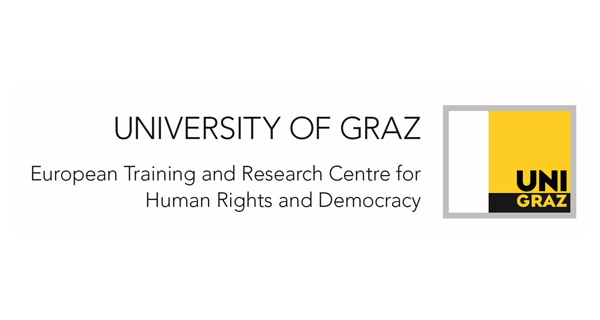
Universität Graz, Austria
Founded in 1585, the University of Graz (Uni Graz) is the second oldest university in Austria. With about 30.000 students and 4.700 employees, it is one of the largest institutions of higher education in Austria. Across its six faculties, the university offers about 160 study programs at 100 departments and centers. As a comprehensive university, Uni Graz regards itself as an international institution for education and research committed to research and teaching for the benefit of society. Against this background, the university also encourages participation in international research and education projects, drawing on decades of experience in this respect. Uni Graz is well-connected internationally, working together with about 500 partner institutions worldwide – for example in strategic partnerships, international networks (e.g. Coimbra Group, Utrecht Network), mobility programs and cooperation projects.
The university conducts top-level basic and applied research based on the foundations of scientific and ethical integrity. Uni Graz is also very active in international education projects, both as a partner and as a coordinating institution.
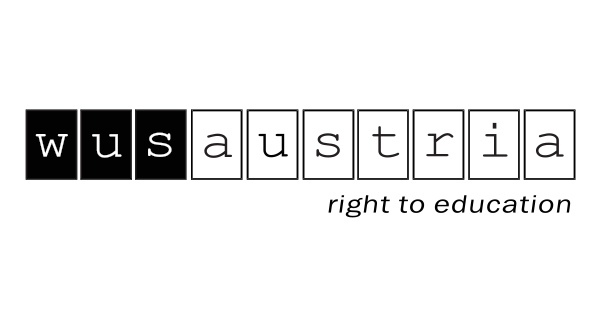
World University Service, Austria
World University Service (WUS) Austria is a politically independent, non-governmental organization committed to the promotion of the human right to education. WUS has a human rights-based approach that provides learners with the knowledge, competence, values, and attitudes which enable them to take an active role in addressing global challenges and working proactively towards a more just world has always been at the heart of our projects.
WUS Austria increases quality in education in accordance with international standards through project development, project management, networking, and consulting services. Our work is based on the principles of local capacity building, sustainability, local ownership, global citizenship education, and empowerment. We provide experts, used to work in complex and intercultural environments, and cooperate with many different partners such as Higher Education institutions, public bodies (e.g., ministries, accreditation agencies), NGOs and companies on a national, regional, European, and international level. In all our projects we put a strong emphasis on quality assurance and on the sustainability of the project results.
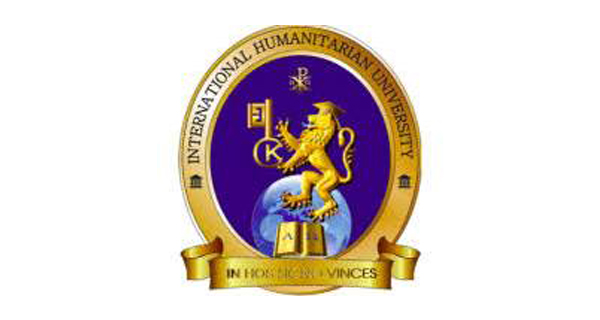
International Humanitarian University, Ukraine
The International Humanitarian University (IHU) was established as a private higher education institution with a collective form of ownership in 2002. In 2010, the IHU received the fourth highest level of accreditation in Ukraine. Today, the IHU is a classical institution of higher education, in the structure of which there are 8 faculties and a Professional College. The
University follows innovative trends. A new faculty of cybersecurity, software engineering and computer science was opened, while a modern material base and cooperation with leading IT companies provide training of the required specialists.
The University features a wide variety of specialities – law, economics, medicine, design, computer engineering, linguistics and translation: here everyone has the opportunity to
choose the profession of their dreams.
Currently, the university has approximately 6,700 students and more than 200 teachers. The teaching staff is composed of a team of highly professional and inspired people – doctors and candidates of sciences, professors and associate professors. In 2022, despite wartime difficulties, more than 2,000 applicants entered the university.
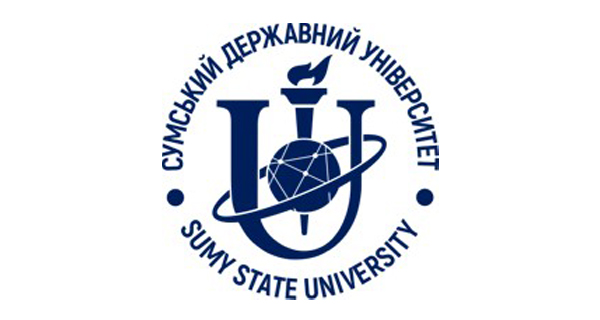
Sumy State University, Ukraine
Sumy State University (SumDU) is a higher education institution of a classical type located in the city of Sumy, North-Eastern part of Ukraine. Its history goes back to 1948, when it started to train engineers to address demands of the regional industry. After a range of transformations as a polytechnic institution, in 1993 Sumy State University obtained its status of a comprehensive HEI. Today, the University follows the ideology of research institution where scientific activity together with a large-scale international cooperation and the focus on innovation technologies, in particular ICT, is dominating. The research and educational activity of SumDU embraces a wide scope of subject areas from engineering and ICT to natural and social sciences, medicine and humanities.
Internationalisation is a strategic priority for University development, aimed to ensure global perspective and high quality of educational and research services, provide international and cross-cultural experience to students and staff, contribute to solutions for current international challenges under sustainable development goals.
SumDU is a signatory of Magna Charta Universitatum and a reliable member of most authoritative international academic organizations, in particular International Association of Universities and European University Association.
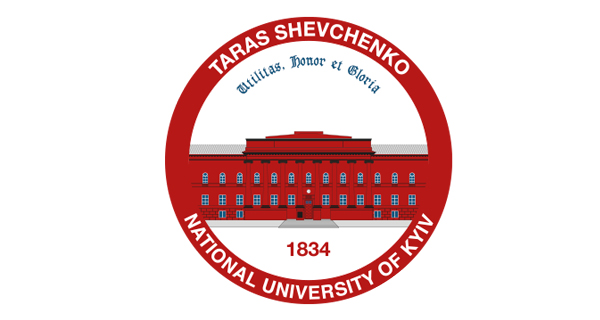
Taras Shevchenko National University of Kyiv, Ukraine
Taras Shevchenko National University of Kyiv (TSNUK) was founded in 1834 and is one of the national and regional leaders in the field. It provides undergraduate, graduate, postgraduate and doctoral education in the majority of fields. It has a special status of autonomous research national higher educational institution. The University is famous throughout the national and international arena for teaching and research excellence.
TSNUK occupies leading positions in international rankings among higher education institutions in Ukraine and is among the TOP 50 universities in Eastern Europe. TSNUK is committed to research and cooperation that invests in the economic and social well-being of the country and works collaboratively with business, government, and non-government partners from Ukraine and abroad. TSNUK contributes to ensuring an inclusive, open, sustainable, and democratic environment for training, learning, and research. Furthermore, TSNUK is flexible in its collaboration with international partners to deliver various projects which aim at institutional, professional, social development, and well-being.
Today the University has bilateral partnership agreements with 322 foreign educational and scientific institutions from 62 countries.
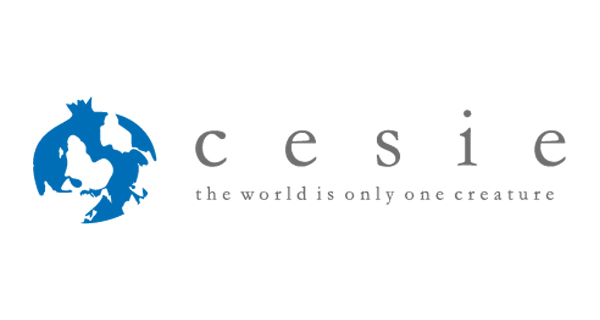
CESIE, Italy
CESIE is a non-profit and non-governmental organisation based in Palermo (Italy) and established in 2001. It is committed to promote the cultural, social, educational and economic development at local, national, European and international levels.
CESIE contributes to growth and development through the active participation of people, civil society and institutions, always valuing diversity. CESIE benefits from a broad network of partners with 3000+ civil society organisations, youth centres, social actors, schools, universities, research centres, public authorities, enterprises and entrepreneurs in the world.
CESIE staff is composed of 70 people with a wide range of qualifications, skills and professional profiles, united by a deep sharing of ideals that lead our activities. The team has an international character being composed not only by Italians, but also by people from the UK, Germany, France, Spain, Serbia, Greece, Lithuania, Nepal, Ukraine, etc. CESIE is therefore considered to be a very concrete and positive example of European values
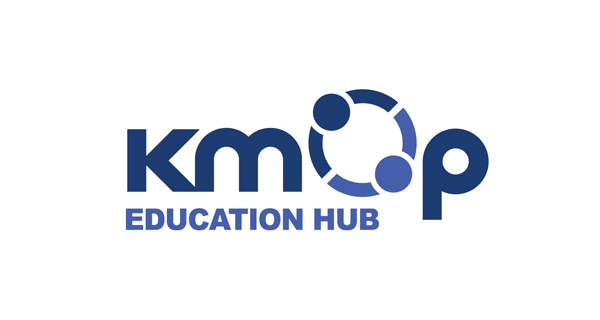
KMOP – Education and Innovation Hub, Greece
KMOP is one of oldest civil society organizations in Greece with 45 years of experience in direct provision of social services and implementation of social initiatives in supporting vulnerable individuals.
KMOP studies and analyses pressing societal challenges in order to understand society, proposes innovative interventions, educates, and develops the know-how to address social issues based on fairness, innovation, sustainability and balanced development. It actively supports individuals and communities through the direct provision of social services and educational opportunities, the implementation of innovative initiatives, research and impactful policy design.
The ultimate goal of KMOP to contribute to effective social-policy design and to lead impactful programmes that promote individual well-being, reduce inequalities, eliminate vulnerabilities, and foster inclusive and sustainable social growth.
Aiming to promote social progress through education, KMOP Education Hub has developed a range of educational programmes for individuals and businesses, helping them to navigate their social ecosystem towards achieving their goals and contribute to a more inclusive and sustainable future.
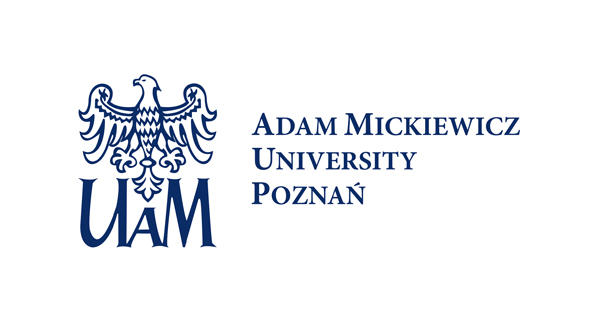
Adam Mickiewicz University, Poland
Adam Mickiewicz University (AMU), Poznań (AMU) was founded in 1919 and is one of the largest and oldest universities in Poland. The seat of the University is located in Poznań, which is the capital of Wielkopolska, a region with about 550 thousand inhabitants. AMU is a public university conducting research in 27 disciplines, and a prominent educational institution, as
confirmed by numerous distinctions awarded by the Polish Accreditation Committee. Its 100-year-old reputation is founded on long tradition of higher education in the City of Poznań and the outstanding current achievements of its staff, students, and graduates.
The Faculty of Political Science and Journalism at AMU conducts extensive research in political science and administration, social communication and media studies as well as security studies. There are currently 4,000 students at the Faculty, together with a teaching staff of 170 persons.
AMU has developed a long-lasting collaboration with many Ukrainian universities.
